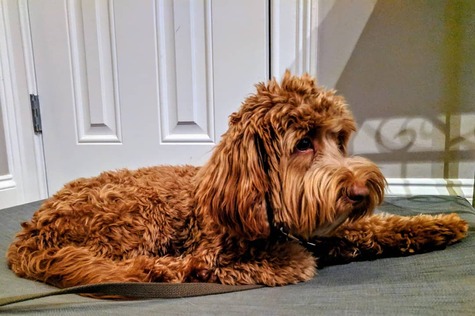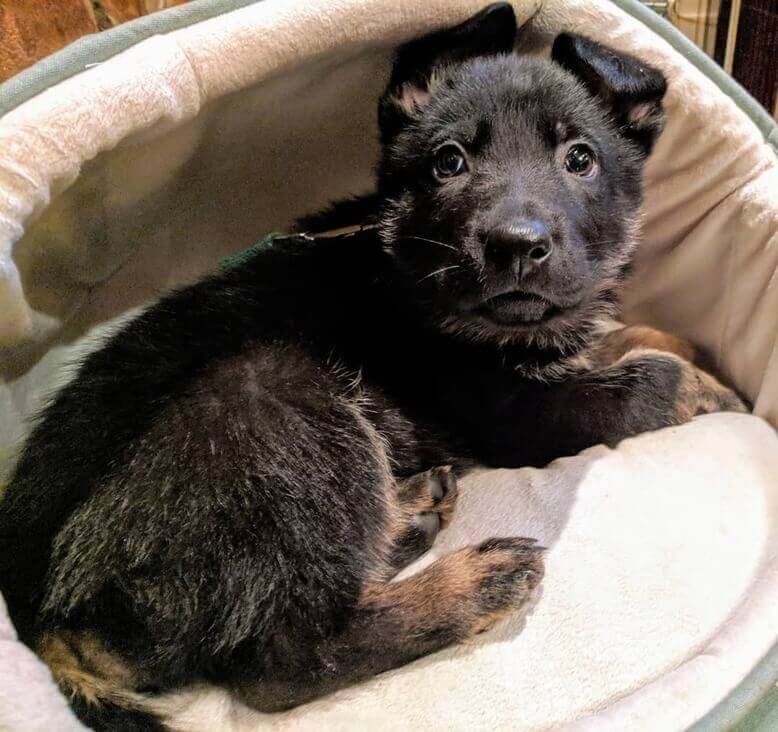Key Summary
- Why Do Dogs Snore? Dogs may snore due to various reasons, including foreign objects stuck in the nasal cavity, excess weight and obesity, and underlying respiratory conditions.
- It’s essential to be concerned about your dog’s snoring when it becomes persistent, loud, or is accompanied by signs of respiratory distress, such as gasping for air or labored breathing.
- A veterinarian can help address dog snoring by diagnosing underlying health issues through comprehensive examinations and diagnostic tests, and recommending appropriate treatments or interventions, such as weight management plans or allergy treatments.
- Understanding these common reasons for dog snoring and seeking veterinary assistance when necessary can help ensure your furry friend’s well-being and improve their quality of life.
Noisy Nappers: Understanding the Common Reasons Why Do Dogs Snore

Curled up beside you, does your dog’s nighttime serenade rival a symphony of snores? Don’t worry; you’re not alone! Snoring is a common occurrence in dogs and can vary from soft, gentle purrs to thunderous rumblings that could wake the neighbors. If you are wondering why do dog snores, just like us, they snore when the passage of air through their airways is partially obstructed during sleep.
While snoring is often normal, especially in certain breeds like Bulldogs or Pugs with short noses, it can sometimes indicate an underlying condition such as obesity or respiratory issues. So, if you find yourself wondering whether your furry friend’s snoring is just part of their nightly routine or something more, it might be worth exploring further to ensure they’re sleeping soundly and comfortably.
The Curious Case of Canine Snoring
The relationship between sleeping and snoring in dogs is a fascinating one. This guide is your roadmap to understanding this intricate connection and navigating through the world of dog snoring with ease.
From uncovering the reasons behind your canine companion’s nocturnal noises to providing practical strategies for addressing them, we’ve got all the insights you need to ensure both you and your furry friend enjoy restful nights of sleep.
Get ready to dive into the world of doggy slumber and discover how to help your pup snooze soundly without the noisy interruptions. With this guide by your side, you’ll be well-equipped to tackle dog snoring head-on and ensure your furry companion gets the quality sleep he deserves.
When Do You Need to be Concerned about Your Dog’s Snoring?
Persistent snoring that disrupts your dog’s sleep or becomes louder over time could signal an underlying issue. If you notice signs such as gasping for air, labored breathing, or periods of apnea where breathing temporarily stops, it’s crucial to seek veterinary attention promptly. These symptoms may indicate respiratory problems or conditions like sleep apnea, which require professional evaluation and treatment.
Additionally, if your dog exhibits the following symptoms, your dog may have a medical condition that needs professional help:
- Excessive fatigue or lethargy during the day;
- Nasal discharge or congestion accompanying snoring;
- Bluish tint to the gums or tongue, which indicates a lack of oxygen;
- Signs of distress or anxiety during sleep, such as thrashing or restlessness;
- Changes in appetite or weight loss.
It’s important to schedule an appointment with a veterinarian in the Cleveland, OH area if your dog is exhibiting any of these signs.
Common Reasons Why Do Dogs Snore
Dogs can snore for various reasons, and understanding these factors can help pet owners address their furry friend’s nighttime noises effectively. Here are three common reasons why dogs snore:
- Foreign objects stuck in the nasal cavity: Sometimes, dogs may inadvertently inhale small objects like grass seeds or toy parts, leading to nasal obstruction and snoring.
- Excess weight and obesity: Just like in humans, excess weight in dogs can lead to the accumulation of fatty tissues in the throat and airways, resulting in snoring.
- Underlying respiratory conditions: Respiratory issues such as allergies, infections, or anatomical abnormalities can cause inflammation or blockage in the airways, contributing to snoring.
By recognizing these common reasons for dog snoring, pet owners can take proactive measures to address them and ensure their furry companions sleep soundly and comfortably.
Other Reasons of Your Pet’s Snoring
Aside from medical-related conditions, there are various other reasons that could lead to snoring in dogs. Factors such as breed, age, weight, and sleeping position can all contribute to snoring in dogs.
Fortunately, there are several at-home remedies you can try to address mild snoring, such as adjusting your dog’s sleeping position, keeping their bedding clean and dust-free, and maintaining a healthy weight through diet and exercise.
By understanding these factors that can contribute to snoring and implementing simple lifestyle changes, you can help alleviate your dog’s snoring and ensure they enjoy restful nights of sleep.
Allergy and Nasal Congestion
Different allergens can irritate a dog’s nasal passages and hinder airflow, leading to inflammation and congestion that can in turn cause snoring. Some common allergens include pollen, dust mites, mold spores, and certain foods.
To manage snoring caused by these allergens, consider minimizing your dog’s exposure to known allergens by keeping their living environment clean, using air purifiers, and opting for hypoallergenic bedding. Additionally, consult with your veterinarian to explore allergy management medications such as antihistamines or allergy shots tailored to your dog’s specific needs, helping to alleviate snoring and promote better breathing.
Does Sleeping Position Cause Snoring
Yes, your dog’s sleep position can indeed affect their snoring patterns. For example, sleeping on their back may cause their airway to become partially blocked, leading to louder snores. Any awkward sleep position of your dog can constrict the airways that increases snoring intensity.
To help alleviate snoring related to sleep position, consider providing your dog with a comfortable and supportive bed with his head cradled on a pillow for a raised position, minimizing snoring. Encourage side sleeping too or in a position that his airways are expanded to prevent snoring. Additionally, ensure their sleeping environment is conducive to restful sleep by keeping the area clean, quiet, and free from distractions, allowing your furry friend to snooze soundly and snore-free.
Dog Breeds that are More Prone to Snoring
If you have a furry companion belong to the brachycephalic breed, get ready for some seriously loud snores even for a city such as Cleveland, OH, the Rock and Roll Capital of the world.
These dog breeds are more prone to snoring due to their unique facial structures and anatomy. Dogs characterized by their short snouts and flat faces are predisposed to snoring because of narrowed airways. Examples of brachycephalic breeds include Bulldogs, Pugs, French Bulldogs, and Boston Terriers, whose adorable squished faces may contribute to their signature snores.
Understanding these breed-specific traits can help pet owners better manage their dog’s snoring. In severe cases, a surgery will be suggested not only to curb excessive snoring but also to help them breath easier.
How Can A Vet Help with Snoring in Dogs?
Veterinarians play a crucial role in addressing if dog snoring by diagnosing whether your furry friend’s habit is indicative of underlying health issues. Through comprehensive examinations and diagnostic tests, they can determine the root cause of your dog’s snoring and assess whether snoring could pose any health risks.
If necessary, veterinarians can then recommend appropriate solutions, such as weight management plans, allergy treatments, or surgical interventions, to help alleviate snoring and improve your dog’s quality of life. With their expertise and guidance, you can ensure your canine companion sleeps soundly and breathes easy.
Guiding Pet Owners in Addressing Dog Snoring
As a devoted pet owner, it’s essential to prioritize your dog’s health and happiness, including addressing their snoring habits. By staying aware and alert to any changes in your furry friend’s snoring patterns, you can take proactive steps to ensure their well-being.
With the insights and tips provided in this guide, you have the power to make a difference in your dog’s sleep quality, ultimately gifting them the restful nights they deserve. After all, a little extra care and attention can go a long way in ensuring your pooch sleeps soundly and wakes up refreshed each day!


